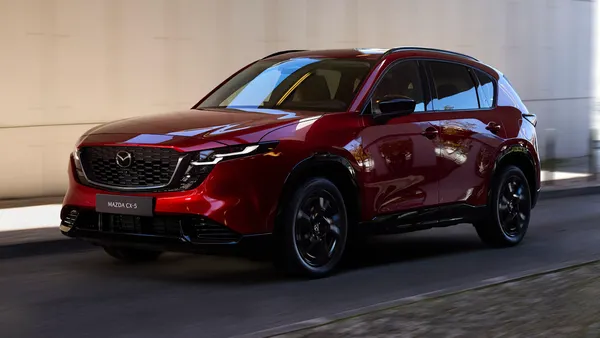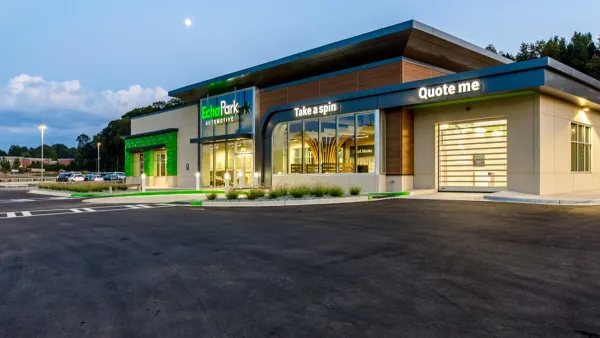Editor's note: This story is part of the WardsAuto digital archive, which may include content that was first published in print, or in different web layouts.
MANHATTAN BEACH, CA — As a former high school teacher, California auto dealer Mike Johnson believes in educating employees. He has created a “curriculum” for teaching rookies how to sell cars, training about 1,000 over the years, with four going on to become dealers themselves.
As a holder of a master's degree in mathematics, Johnson is a believer in tracking and analyzing data. “I measure everything,” he says. He constantly monitors sales leads, appointment rates and closing ratios.
Plan your work and work your plan, he says. “I've studied the best sales systems in the world. Successful dealers are ones with a system, a playbook.”
He's convinced the No.1 reason sales people trip up is that they fail to qualify shoppers by inquiring about their tastes, lifestyles and driving habits. Consequently, they have trouble getting the right car for the right customer.
Johnson offered something of a mini-course in automotive retailing during a recent presentation at an E.N.G. customer-relationship management conference here.
He grew up in Southern California. In 1973, while pursuing a teaching career, he took time off from graduate studies to sell cars and make enough money to finish his master's degree. He has been in the car business ever since, working first at a Toyota dealership, then a Ford store. When he became a partner there in 1979, he was the youngest Ford dealer in the U.S.
Johnson, owner and president of Antelope Valley Ford in Lancaster, CA, has built 10 dealership facilities, the most recent a Nissan store in the Fresno, CA, market. He currently is building an eleventh.
Much has changed in his 33 years in the business. In the old days, he recalls a time when many dealerships refused to tell customers prices over the phone; mastered bait-and-switch tactics; fined and even fired sales people for selling cars at advertised prices.
“Sales people were indoctrinated to this culture,” says Johnson. “Then along comes the Internet. Along comes third-party leads and educated customers who know invoice prices. The Internet saves car buyers time, but more importantly it saves them from the old-fashioned buying experience.”
Johnson doesn't profess to be an expert on the Internet selling process. He is learning as he goes.
“Here's what I learned,” he says: “It's a completely different customer. Remember the taboo about not telling the customer the price beforehand? Imagine doing that to an Internet customer.”
In addition to providing “great product information” — including inventory prices and seven-nine photos of every featured car — Johnson's dealership website offers movie times; weather reports; local sports information; and, coming soon, a restaurant guide. There are links to lenders, rebates and Kelly Blue Book. The content also includes several “why-buy-from-us” statements.
“Give the customer a lot of reasons to visit your website,” he says. And make it easy to navigate. “Have a kid try navigating your site. If they say it is confusing, it is.”
Johnson is convinced “the Internet is not about price; it's about process.” His average profit on an Internet sale is $1,200 on the front end and $2,700 on the back. “Ninety percent of people who go to the Internet, go to ‘buy’ a dealership, not a car,” he says.
Quality and speed of e-mail responses are critical. Replies should answer all questions and ask what Johnson calls “yes-yes” questions (“Do you like red or blue?” and not, “Do you like a blue car?”) If an e-shopper asks about a new vehicle, provide information on a comparable used one.
He invests a lot of money on search-engine marketing so his ads show up on search-result pages. “I'm all over Google,” he says. His marketing efforts include e-mail blasts. “E-blasts are the best form of advertising on the planet,” says Johnson.
His dealership's opt-out rate is minimal. “One reason is that we give a car on Christmas Eve to one person who is on the list.” He also offers teasers, such as oil-change discounts.
Because Internet selling is so different than traditional sales, Johnson says many sales people are unable to shift from one culture to the other. “Identify those that can and eliminate those that can't,” he says.
Internet customers want a different process. They want to be spared hiking across acres of inventory looking at cars; don't want to haggle over prices and prefer credit answers in advance, Johnson says.
“If you listen to customers, people who have had good experiences buying a car over the Internet will never buy a car the old way again.”









